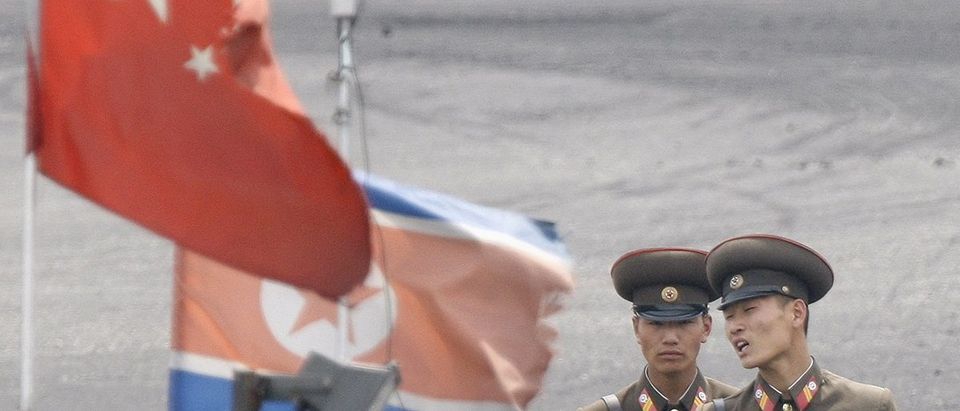China’s actions over the past few days suggest that it is seriously worried about its nuclear neighbor and the rapidly rising tensions in Korea.
North Korea conducted its sixth and most powerful nuclear weapons test over the weekend, claiming to have successfully detonated a thermonuclear device — a hydrogen bomb. The U.S. intelligence community has yet to conclude whether North Korea tested an actual thermonuclear weapon or a boosted fission device, but the explosive yield is estimated to be around 150 kilotons, much larger than anything the regime has tested before. At the same time, North Korea has been firing off missiles of varying ranges frequently. That’s a lot of action, especially for the Chinese government, which does not do well with surprises.
The Chinese military, after complaining for months about American missile defense activities, conducted a test of a Chinese antimissile system Tuesday morning, according to the Chinese military.
An anti-aircraft defense battalion trained for a “surprise attack” near the Bohai Sea, the inner gulf of the Yellow Sea that separates Chinese territory from the Korean Peninsula. The antimissile systems eliminated low-altitude rockets, while ground troops trained to protect themselves against nuclear, biological, and chemical weapons strikes. China is concerned about the buildup of American strategic military assets around the Korean Peninsula, but only North Korea has active chemical and biological weapons programs. The North is believed to be able to produce deadly nerve agents in vast quantities.
The details of the drill reflect China’s concerns over North Korea’s reckless behavior. Nonetheless, the nature of China’s involvement in any potential conflict will likely depends on how the fighting starts, specifically which country initiates the conflict.
“This shows China is prepared and able to stop any power that threatens stability in the region,” Beijing-based military expert Li Jie explained to the South China Morning Post, adding that the latest drills were also a warning to the current U.S. administration, which has kept the application of military force on the table.
“China will never allow chaos and war on the peninsula,” Chinese Ambassador to the United Nations Liu Jieyi said Monday at a Security Council meeting. China is one of several countries, including South Korea and Japan, boosting combat capabilities in preparation for additional North Korean provocations, escalation, and possible conflict.
“China can only rely on [conducting] more drills to raise its military capability amid an unstable situation,” Li told the SCMP.
China has conducted three drills in the Bohai Sea area since July after North Korea successfully tested its intercontinental ballistic missile for a second time. Tensions have risen between Beijing and Pyongyang, as the former has stood with the United Nations against its old ally, condemning North Korea’s actions and approving tougher sanctions against the regime.
In the wake of the North’s sixth nuclear test, China put its radiation-monitoring teams on high alert, instructing them to search for signs of radioactive fallout or contamination. For the time being, no traces of radiation leaks have been detected. It may be days or weeks before radiation from the most recent test can be detected, the Wall Street Journal reports.
There are serious concerns in Beijing that an environmental disaster could quickly become a political problem, causing the public to push the Chinese government to keep North Korea in check, possibly by force.
News of the nuclear test was limited in China, and online discussions of the latest test were censored by government authorities. Beijing is worried that the crisis on the peninsula will spill into China in one way or another, causing instability.
The friendly spirit of the Mar-a-Lago meeting between President Donald Trump and Chinese President Xi Jinping in early April has faded, and China and the U.S. often fail to see eye-to-eye on North Korea. The two countries have different strategic visions for the Korean Peninsula, with one side calling for maximum pressure while the other calls for dialogue and diplomacy.
Despite friction in U.S.-China relations, North Korea is clearly becoming more of a liability than an asset for Beijing.
Send tips to ryan@
All content created by the Daily Caller News Foundation, an independent and nonpartisan newswire service, is available without charge to any legitimate news publisher that can provide a large audience. All republished articles must include our logo, our reporter’s byline and their DCNF affiliation. For any questions about our guidelines or partnering with us, please contact licensing@dailycallernewsfoundation.org.


